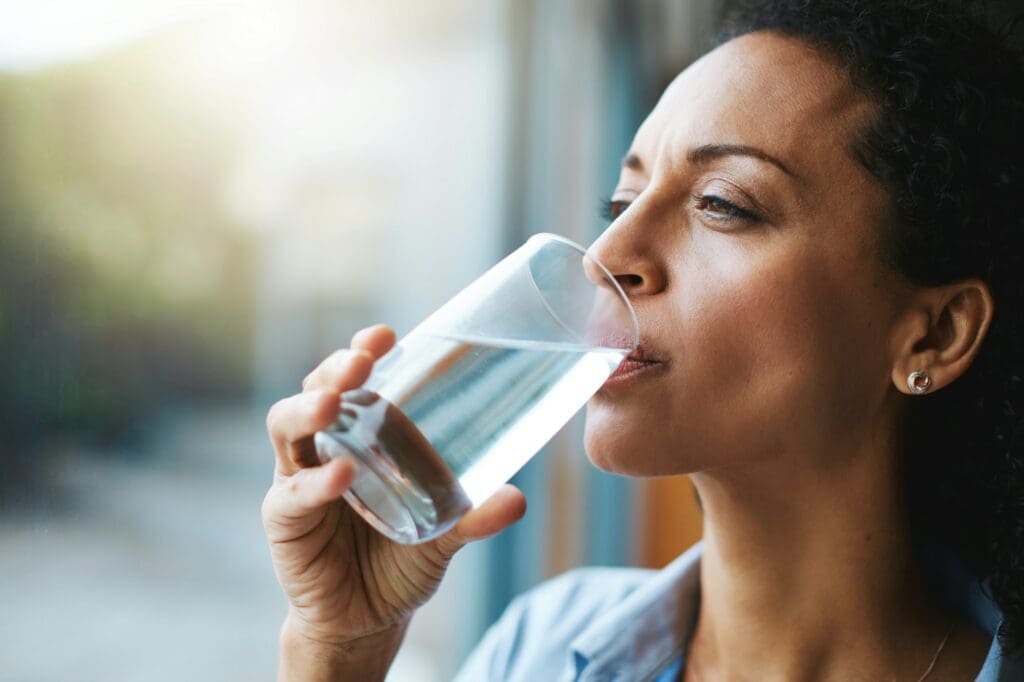


Hydration isn’t just about quenching your thirst; it’s a cornerstone of your overall health and well-being. Whether you’re sipping on a refreshing glass of water or enjoying a hydration-packed snack, keeping your body well-hydrated plays a key role in everything from maintaining energy levels to supporting digestion and cognitive function.
“Drinking enough water is like giving your body the fuel it needs to perform at its best,” says Dr. Emily Stevens, a nutrition expert.
But what’s the best way to stay hydrated, and why is it so crucial for your health? Let’s dive into the essentials.

Water is a fundamental component of every cell and organ in your body, making it crucial for sustaining life. It supports myriad physiological functions, from regulating body temperature through sweating to assisting in the transportation of nutrients and oxygen to cells.
Energy Levels: Hydration directly impacts your energy levels. When your body lacks sufficient water, you may experience fatigue, dizziness, or even headaches. Drinking enough fluids keeps your energy stable and ensures that your body can perform at its best.
Detoxification: Your kidneys rely on water to flush out toxins and waste products from your bloodstream. Staying hydrated aids in preventing kidney stones and urinary tract infections, keeping these vital organs functioning optimally.
Digestion and Nutrient Absorption: Adequate water intake is essential for digestion and the efficient absorption of nutrients. It helps dissolve minerals and nutrients, making them accessible to your body. Moreover, water is crucial for preventing digestive complications like constipation and bloating.
Temperature Regulation: Hydration is vital for maintaining your body’s temperature. Through the process of sweating, your body cools down, preventing overheating and potential heat strokes. Proper water balance ensures that this system operates smoothly, especially in hot conditions or during vigorous physical activity.
In conclusion, maintaining optimal hydration is not just about quenching your thirst. It’s about supporting your overall health, from energy levels and digestion to detoxification and temperature regulation. Make hydration a priority in your daily routine to enjoy these comprehensive health benefits.
Staying hydrated isn’t just about quenching your thirst—it’s about keeping your entire body and mind functioning at peak performance. When you become dehydrated, even mildly, the consequences can be quite significant.
Let’s explore how a lack of adequate fluids can disrupt both physical and mental processes, affecting everything from your energy levels to your ability to concentrate.
Feeling like you’re constantly falling short of your daily water intake? You’re not alone! Many of us struggle to meet hydration goals.
Fortunately, with small, deliberate changes, you can easily boost your water consumption and keep dehydration at bay. Let’s explore some practical and accessible tips to help you stay refreshed and energized.

Want to achieve glowing, healthy skin? You may not need to look any further than your water bottle. While there’s a lot of buzz around the idea that staying hydrated can transform your complexion, the truth is a bit more nuanced.
Drinking water won’t magically erase wrinkles or stop aging, but it does play a crucial role in keeping your skin hydrated, thick, and dense—essential factors for a radiant appearance.

Imagine trying to focus on a difficult project or recall an important detail during a meeting, only to find your thoughts murky and disjointed. This lapse in mental clarity could be a sign of dehydration.
Even mild dehydration can impair brain function and affect your mood. Studies have shown that as little as a 1-2% loss in body water can lead to reduced cognitive performance, impairing your ability to concentrate and increasing the chances of mental fatigue.
Water is essential for maintaining optimal brain function. It helps with the delivery of nutrients to brain cells and the removal of toxins, ensuring your neural pathways remain clear and efficient.
Staying hydrated supports neurotransmitter production and electrical activity in the brain, both of which are crucial for processing information and making quick decisions.
Moreover, proper hydration can boost your mood and mental well-being. Dehydration has been linked to anxiety and mood swings. By making sure you drink enough water, you can maintain a more stable and positive mindset, which is crucial for handling everyday stressors effectively.
In essence, water is a simple yet powerful tool to enhance mental clarity and cognitive function. Drink up and give your brain the hydration it needs to perform at its best!
Staying adequately hydrated is crucial, but it can be challenging to keep track of your daily water intake, especially with a busy lifestyle.
Thankfully, technology offers several innovative tools to help you monitor and improve your hydration habits. These digital solutions can remind you to drink water, track your consumption, and even provide personalized insights based on your needs and activities.

Ever wonder when’s the optimal time to drink water? Timing can make a significant difference in how effectively your body absorbs and uses it. Let’s delve into the best times of day to drink water and maximize its benefits for your health and well-being.
Different weather conditions present unique challenges when it comes to staying hydrated. Here’s how you can adjust your hydration habits based on the weather:
In hot weather, your body loses more water through sweat as it tries to cool down. To stay hydrated:
In colder conditions, you might not feel as thirsty, but staying hydrated remains crucial:
High humidity can increase sweat loss, making hydration more critical:
Adjusting your hydration strategy based on the weather can help you maintain optimal hydration levels, ensuring your body functions smoothly, regardless of the climate. Remember, consistent hydration supports your overall health and wellbeing.
Absolutely. Staying hydrated is crucial for maintaining mental clarity and focus. Your brain is composed of about 75% water, so even mild dehydration can impair cognitive functions like concentration, alertness, and short-term memory.
Consistently drinking enough water helps keep your brain well-lubricated, supports neurotransmitter production, and ensures optimal blood flow, which all contribute to sharper thinking and better productivity. So, keep water within reach, especially during tasks that require intense concentration.
Absolutely! Aside from water, many foods contribute to your daily hydration needs. Fruits and vegetables with high water content, like watermelon, strawberries, cantaloupe, lettuce, celery, and cucumber, are excellent choices.
Not only do they help keep you hydrated, but they also provide essential vitamins and minerals. For example, strawberries and cantaloupe are nearly 90% water by weight. Including these in your diet can make it easier to stay hydrated without constantly reaching for your water bottle.
Absolutely, staying hydrated can play a significant role in weight management. When you drink plenty of water, it creates a sense of fullness, which can reduce your overall calorie intake by preventing overeating.
Replacing sugary beverages such as soda with water is also an effective way to cut down on unnecessary calories. Additionally, drinking water can slightly boost your metabolic rate, helping your body to burn calories more efficiently.
Proper hydration supports digestion and the absorption of nutrients, both of which are essential for maintaining a healthy weight.
Hydration plays a direct role in physical performance. When you exercise, your body loses water through sweat. This loss of water can lead to dehydration, which negatively impacts your strength, endurance, and overall energy levels.
Staying well-hydrated helps your muscles work efficiently, reduces fatigue, and maintains optimal body temperature, allowing you to push through your workouts effectively.
Maintaining euhydration, a state of normal body water content, during vigorous physical activity is critical.
It prevents a hypohydrated state—where fluid loss is not sufficiently replaced—which is important because inadequate hydration can increase your core body temperature. This can lead to heat-related issues such as heat exhaustion or heat stroke.
Studies have shown that dehydration can result in impaired physical performance, particularly during activities that require endurance, such as running or cycling.
Even slight dehydration can decrease your athletic performance and ramp up your perception of effort, making exercise feel harder than it should.
Additionally, well-hydrated athletes often experience fewer instances of cramps and joint pain. This is because water helps to lubricate the joints and muscles effectively. In short, maintaining good hydration is key to ensuring your body functions optimally during any physical endeavor.
Yes, it is indeed possible to drink too much water, a condition known as water intoxication or hyponatremia. This occurs when the balance of electrolytes in your body is disrupted by a large intake of water.
Symptoms can range from mild to severe and include headache, nausea, confusion, seizures, and in extreme cases, it can be life-threatening. It’s crucial to listen to your body and not force excessive water intake.
The general recommendation is to drink when you’re thirsty and be mindful of your body’s signals. It’s important to note that specific situations, such as intense exercise or hot weather, might require more water than usual.
If you’re experiencing symptoms of dehydration, like dark urine or dizziness, it’s a sign to increase your water intake. Conversely, if you’re constantly running to the bathroom or feeling bloated, you may need to cut back.
For most people, following the common guideline of eight 8-ounce glasses of water per day works well. However, individual needs can vary based on factors like age, gender, activity level, and climate. Always consider these variables when determining how much water you should be drinking daily.
Remember, balance is key. Staying adequately hydrated is crucial for your health, but moderation is just as important. If you’re ever in doubt about how much water is right for you, consulting a healthcare professional can provide personalized advice.
Absolutely, hydration can significantly impact your skin health. When you’re well-hydrated, your skin can appear plumper and more elastic. This is because water helps maintain skin hydration and can improve the overall appearance of your skin.
While it’s a common myth that drinking water will prevent wrinkles, staying hydrated does support the skin’s barrier function, making it more resilient to external irritants.
Moreover, adequate hydration contributes to proper blood flow, which can aid in delivering essential nutrients to your skin cells, potentially improving skin density and thickness.
Although water alone won’t resolve all skin issues, such as acne or chronic dryness, it is a crucial component of an overall skincare regimen. Remember, maintaining hydration habits is a simple yet effective way to support your skin’s health over the long term.
Staying hydrated is more than just a matter of quenching your thirst; it’s an essential component of maintaining optimal health.
Whether it’s boosting your skin’s radiance, enhancing mental clarity, or simply keeping your body’s systems running smoothly, the benefits of adequate hydration are undeniable.
By integrating easy-to-follow hydration habits into your daily routine and utilizing modern technology to keep track, you can significantly improve your overall well-being.
Remember, listening to your body’s signals is key. Pay attention to signs of dehydration, adjust your intake based on weather conditions, and make water consumption a natural part of your lifestyle.
With these simple yet effective strategies, you can ensure that you stay hydrated and healthy, no matter what life throws your way.
So, the next time you reach for a drink, make it water, and take a step towards a healthier, happier you.









